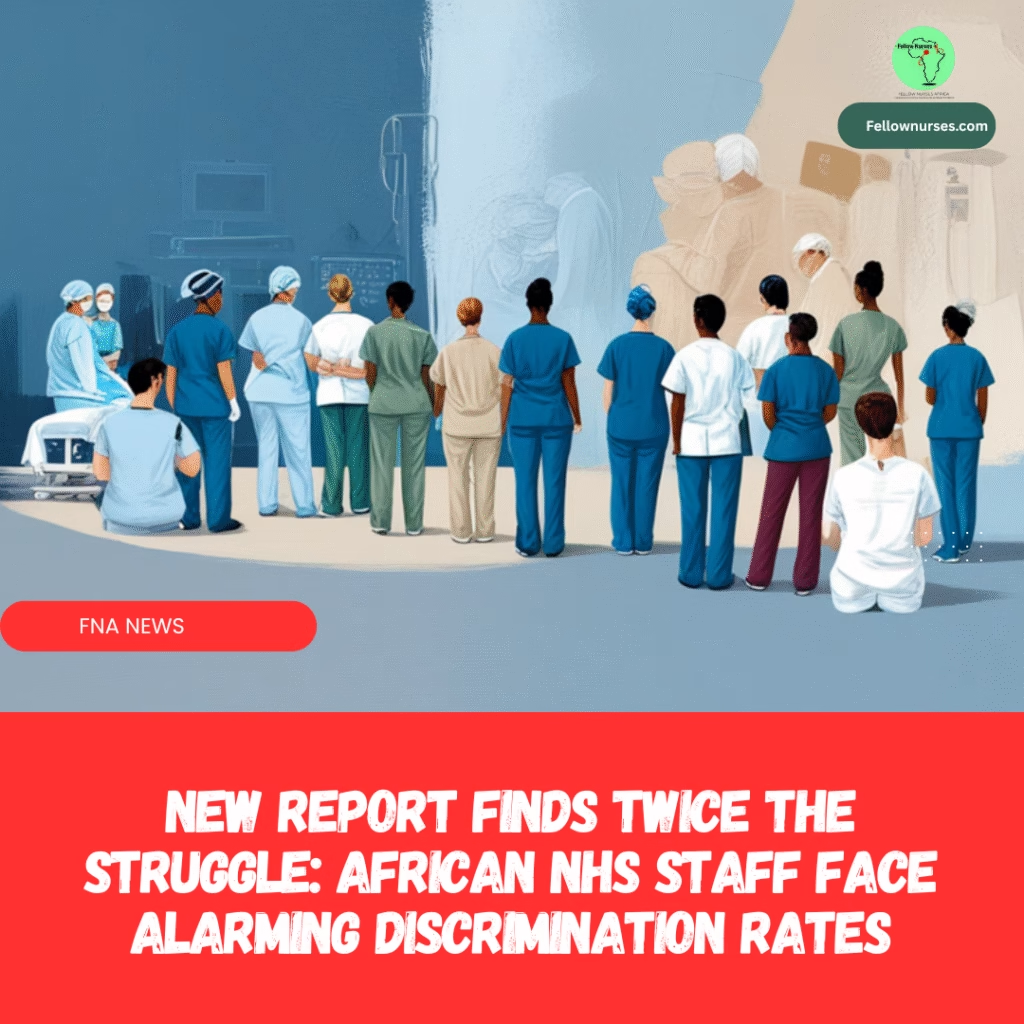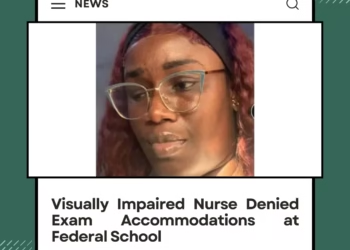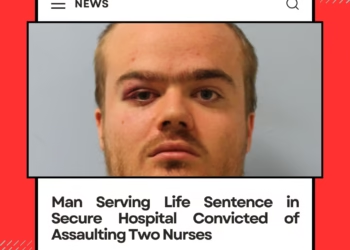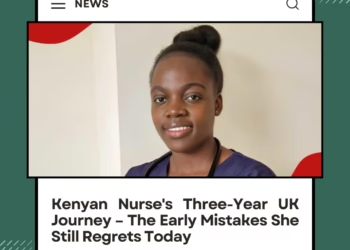Twice the Struggle: African NHS Staff Face Alarming Discrimination Rates in 2024
Fellow Nurses Africa News Report || Lagos, Nigeria || 26 June, 2025.
In the heart of the UK’s National Health Service (NHS), African healthcare professionals are battling systemic barriers that hinder their careers and workplace experiences. The 2024 Workforce Race Equality Standard (WRES) report, released by NHS England, shines a spotlight on these challenges, revealing stark disparities in career progression, recruitment, and workplace treatment for African and other Black staff. Despite progress in some areas, the data paints a troubling picture of inequality that demands urgent action.
Career Progression: A Steep Climb for African Staff
For African NHS workers, the path to career advancement is fraught with obstacles. The WRES report shows that only 42.3% of staff from a Black background, including African professionals, believe their NHS trust offers equal opportunities for career progression or promotion (Figure 19, WRES Indicator 7). This compares to 48.8% of all Black and Minority Ethnic (BME) staff and a significantly higher 59.4% of white staff.

This gap, consistent since at least 2015, highlights a persistent lack of confidence among Black staff in achieving fair career opportunities, with African professionals particularly affected within this group.
Discrimination: A Harsh Reality
Discrimination remains a stark issue. According to the report, 15.5% of BME staff experienced discrimination from managers, team leaders, or colleagues in the past 12 months, compared to just 6.7% of white staff (WRES Indicator 8, Figure 21). For Black women, including those of African descent, the rate rises to 17.9%, with women from “other” Black backgrounds facing an even higher 21.9% (Figure 22). This means Black women are over twice as likely to encounter workplace discrimination than their white counterparts, a pattern that has held since 2015. African women also face significant harassment from patients, relatives, or the public, with 33.0% reporting such incidents—second only to White Gypsy or Irish Traveller women (37.7%) and men (41.2%) (Figure 13).
Recruitment Barriers: Unequal Opportunities
The hiring process presents another hurdle. At 80% of NHS trusts, white applicants are significantly more likely to be appointed from shortlisting compared to BME applicants, up from 76% in 2023 (WRES Indicator 2, Figure 9). This worsening trend, particularly in the Midlands and North West, suggests African candidates face systemic biases that limit their access to NHS roles. The report notes that this recruitment disparity has remained largely unchanged since the WRES began in 2016, signaling a stubborn challenge in achieving equitable hiring practices.
Leadership Representation: Progress, but Not Enough
While there have been gains, they fall short of closing the gap. The WRES report highlights an 85% increase in BME very senior managers, from 201 to 372 since 2018, and a rise in BME board membership to 16.5% (WRES Indicator 9, Table 2). However, with 28.6% of the NHS workforce (434,077 people) now from a BME background (WRES Indicator 1), representation at senior levels lags behind. Only 12.7% of very senior manager roles and 11.8% of executive board positions are held by BME staff (Figures 3, 27). The gap between BME board representation (16.5%) and the BME workforce (28.6%) has widened to 12.2% in 2024 from 9.7% in 2021 (Figure 24), underscoring that African and other BME professionals are underrepresented in leadership.
A Call for Systemic Change
Dr. Navina Evans CBE, Chief Workforce, Training and Education Officer at NHS England, stressed the urgency of addressing these issues: “While we’ve made strides in fostering inclusion, the data—showing 15.5% of BME staff facing discrimination compared to 6.7% of white staff—reveals that African and other BME colleagues still encounter unacceptable barriers. Systemic change is essential to ensure fairness.” Her words reflect the report’s call for trusts to use local data to drive improvements, creating a workplace where African professionals feel safe, valued, and empowered.
Looking Ahead
As the NHS gears up for its 10-Year Health Plan, tackling these disparities is critical. With 80% of trusts favoring white applicants in recruitment and 99% reporting higher discrimination rates for BME staff (Figure 21), the need for action is clear. The lived experiences of African staff, marked by higher rates of discrimination and limited career progression, underscore the urgency of fostering an inclusive environment to retain talent and deliver equitable care.
Source: NHS Workforce Race Equality Standard 2024 Data Analysis Report
Fellow Nurses Africa is the independent voice of African nursing, we educate, inform and support the nursing profession.










